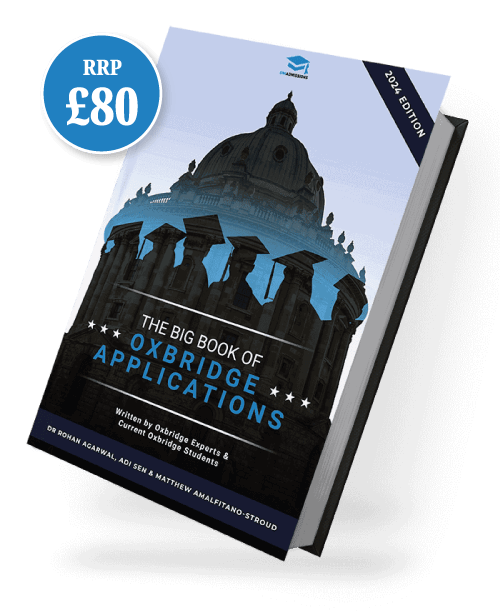With three subjects making up a PPE course, you will likely have a preference for one of them.
Studying Philosophy, Politics and Economics (PPE) is a great opportunity for you to apply a wider variety of knowledge and academic skills to your studies.
We look at the Economics aspect of a PPE course, and how it differs from university to university.
How Much Of PPE Is About Economics?
Each university that offers PPE has a different approach, and therefore give a different weight to each subject.
In general, the weighting for subjects is split evenly between the three. However, there are some anomalies such as the University of Winchester which has placed a 25% weighting on Economics with Philosophy being the main focus of the course.
On the other end of the scale, the University of Manchester is weighted roughly 50% towards Economics with Philosophy and Politics sharing the remaining 50%.
However, keep in mind that this information is only true for the first year of undergraduate and will likely be different in the subsequent years.
Some universities, such as Oxford, offer students the option to drop one of the three subjects from second year and allow a greater focus on the other two subjects. You do not have to do this though and can carry on with all three if you so wish.
The table below shows how every PPE course in the UK has each subject weighted, to give you an idea of what each is like.
| Subject Weight | |||
|---|---|---|---|
| Politics | Philosophy | Economics | |
| Durham University | 33% | 33% | 33% |
| Goldsmith's, University of London | 40% | 20% | 40% |
| King's College London | 33% | 33% | 33% |
| Lancaster University | 33% | 33% | 33% |
| Loughborough University | 50% | 25% | 25% |
| LSE | 33% | 33% | 33% |
| New College of the Humanities | 50% | 25% | 25% |
| Open University | 50% | 0% | 50% |
| Oxford | 33% | 33% | 33% |
| Queen's University Belfast | 25% | 25% | 50% |
| Royal Holloway, University of London | 20% | 40% | 40% |
| Swansea University | 33% | 33% | 33% |
| The University of Liverpool | 33% | 33% | 33% |
| The University of Manchester | 25% | 25% | 50% |
| UCL | 33% | 33% | 33% |
| University of Aberdeen | 33% | 33% | 33% |
| University of Buckingham | 33% | 33% | 33% |
| University of Essex | 33% | 33% | 33% |
| University of Exeter | 30% | 30% | 40% |
| University of Highlands and Islands | 33% | 33% | 33% |
| University of Hull | 33% | 33% | 33% |
| University of Leeds | 50% | 0% | 50% |
| University of Nottingham | 40% | 30% | 30% |
| University of Reading | 33% | 33% | 33% |
| University of Southampton | 30% | 30% | 30% |
| University of Stirling | 33% | 33% | 33% |
| University of Sussex | 33% | 33% | 33% |
| University of Warwick | 33% | 33% | 33% |
| University of Winchester | 25% | 50% | 25% |
| University of York | 33% | 33% | 33% |
Our expert tutors are on hand to help guide you to a successful Oxford PPE application.
We help you craft the perfect Personal Statement, achieve a highly competitive TSA score and teach you how to Interview effectively.
Discover our Oxford PPE Premium Programme.
What Will I Learn About Economics?
Economics impacts key considerations in many political decisions: will higher taxes for the rich really leave us worse off? Are privatised public utilities likely to be more or less efficient than state-run utilities?
In Economics, you will develop your understanding of economic models to explain and predict economic behaviour and impact and acquire data analysis skill to measure economic activity.
Looking at the PPE course at Oxford, for example, in the first-year students will cover ‘Microeconomics’, ‘Macroeconomics’ and ‘Mathematical and statistical techniques used in Economics’ to get an idea of the content you will have to study.
This is the case for the overwhelming majority of PPE courses in the UK, to ensure that students have the basic understanding of Economics.
Ultimately, Economics is the study of how consumers, firms and government make decisions that collectively determine how resources are allocated. An appreciation of Economics has become increasingly necessary to make sense of governmental policymaking, the conduct of business and the enormous economic transformations throughout the world.
Which Universities Place A Greater Emphasis On Economics?
Loughborough, New College of Humanities and Winchester offer the least weighting on Economics in the first year. Both Loughborough and NCH focus on Politics making up 50% of the course content, whilst Winchester has a 50% focus on Philosophy.
But what universities prioritise Economics?
- Exeter
- Goldsmiths
- Leeds
- Manchester
- Queen's
- Royal Holloway
- The Open University
Some of these universities spend as much as 50% of the first year of the course focusing on Economics. So, if Economics is the subject that you are most interested in out of the three these might be the courses for you.
Access "The Big Book Of Oxbridge Applications" For FREE
Applying to PPE at Oxford? Learn everything you need to know about the PPE application process, including the TSA and interviews, in The Big Book Of Oxbridge Applications, available for free now! Through over 350 pages, you will find:
- 28 example Oxbridge Personal Statements
- Over 40 admissions test practice questions
- Interviews with Oxbridge students and graduates
- Additional downloadable resources
Fill in your details below to claim your digital copy today!

Should I Apply To PPE?
If what you have read in this article appeals to you then yes. PPE is exciting and broad, and you will have the flexibility to choose optional modules, which means you will be able to tailor the course to suit your interests and career ambitions.
It is definitely not an easy course since you will be studying three subjects simultaneously – for the first year at least – but if you have a genuine interest for any of the subjects it is worth considering.
Make sure to do your research as the course differs from university to university and it is important that you find the course that is suited to what you are wanting to get out of your studies.
One such determining factor might be a heavier focus on Economics.
Should I Study PPE If I Don’t Want To Go Into Politics?
A common misconception about PPE is that it means a career in Politics. Whilst it is true that many graduates have gone onto career in Politics the degree offers a variety of career paths.
The careers most commonly chosen by PPE graduates are in:
- Banking and finance
- Journalism
- Broadcasting and the new media
- The Law
- Political activism
- Teaching
- Social work
- Voluntary organisations
- Accountancy
- Business management
- Management consultancy
- Advertising
- University teaching
- Think tanks
- International organisations
- Public service
PPE was born out of the conviction that studying the great modern works of economics, social, political, and philosophical thought would have a transformative effect on students’ intellectual lives and thereby on society.
As the world has evolved, so has PPE. The course brings together some of the most important approaches to understanding the world around us, developing skills useful for a wide range of careers.
One such determining factor might be a heavier focus on Economics.
Conclusion
We hope this article gives you an overview of the Economics side of PPE and helps give you a more solid understanding of what is in store.
PPE is a rewarding course, but you must be prepared to put the work in. You may find yourself enjoying the subject that was your least favourite – there are countless opportunities.
With the ability to tailor the degree to your interests, PPE offers great flexibility that many other degrees do not.
Secure your dream place at Oxford to study PPE, with the guidance of our expert tutors.
Applying to Oxford is immensely competitive and it is crucial that you give yourself the best chance of success. We help you craft the perfect Personal Statement, achieve a highly competitive TSA score and teach you how to Interview effectively – covering all areas of your Oxford application.
Discover our Oxford PPE Premium Programme.







